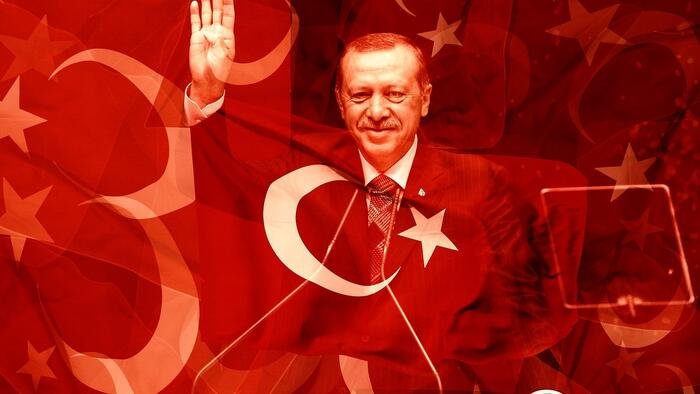Authored by Conor Gallagher via NakedCapitalism.com,
Israel, with US support, is on a rampage across the Middle East while Türkiye is carefully assessing the situation, considering economic and security concerns, ties with NATO and BRICS countries, and its own regional aspirations.
Turkish Parliament Speaker Numan Kurtulmus emphasized the country’s commitment to following its own “national axis” in foreign policy, rejecting the idea of aligning with any power or bloc. As the Middle East faces escalating conflicts, where will this “national axis” lead Türkiye?
Despite President Erdogan’s rhetoric against Israeli Prime Minister Benjamin Netanyahu, goods from Türkiye continue to reach Israel. Oil flows through the Baku-Tbilisi-Ceyhan pipeline to Türkiye’s Ceyhan port, constituting a significant portion of Israel’s supply.
In the midst of halting exports to Israel due to humanitarian concerns, goods find their way to Israel through third countries, bypassing the ban. The US continues to use Incirlik Air Base in southern Türkiye to assist Israel.
As the US and Israel potentially aim for regime change in Lebanon, Türkiye’s stance may align with the goal, as it seeks to increase its influence by weakening Hezbollah’s presence in Syria.
With the Syrian and Lebanese refugee crisis, Türkiye faces economic challenges and pressure to secure its borders amidst the escalating conflicts in the region.
The Syrian war shows signs of reigniting, with Israel’s airstrikes intensifying, potential ISIS resurgence, and conflicts between multiple proxies backed by different countries.
Turkey’s relations with Russia and China are improving, but its ties with the West, particularly the EU, remain significant. The prospect of a stronger Russian-Iranian presence in the region poses concerns for Ankara.
As Türkiye navigates its position in the shifting Middle East landscape, balancing its interests with key players like Russia, the US, and Israel will be crucial in determining its role and influence in the region.
Loading…

